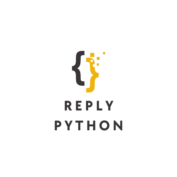Python Stack Overflow is a powerful tool that developers rely on for troubleshooting and finding solutions to coding challenges. It’s a go-to  platform where programmers can seek advice, share knowledge, and engage with a vibrant community of tech enthusiasts. With a vast repository of questions and answers, Python Stack Overflow serves as a virtual mentor for those navigating the intricacies of Python programming.
platform where programmers can seek advice, share knowledge, and engage with a vibrant community of tech enthusiasts. With a vast repository of questions and answers, Python Stack Overflow serves as a virtual mentor for those navigating the intricacies of Python programming.
Whether you’re a seasoned developer or just starting with Python, the platform offers a wealth of insights and solutions to propel your projects forward. By tapping into the collective wisdom of the programming community on Python Stack Overflow, users can troubleshoot errors, optimize code, and stay updated on the latest trends in Python development. Embracing Python Stack Overflow is not just about problem-solving; it’s about fostering a culture of collaboration and continuous learning in the ever-evolving realm of programming.
Python Stack Overflow
Python Stack Overflow serves as a crucial platform for developers, offering a wealth of resources to troubleshoot coding issues, seek guidance, and interact with a vibrant tech community. It acts as a virtual mentor, providing a vast repository of questions and answers to help individuals navigate the complexities of Python programming.
What is Stack Overflow in Python?
Stack Overflow is a popular question and answer website for programmers across various languages, including Python. Users can post coding-related queries, and the community responds with solutions and insights. Python developers frequently utilize Stack Overflow to resolve issues, learn new techniques, and stay updated on industry best practices.
resolve issues, learn new techniques, and stay updated on industry best practices.
- Recursive Functions: Python’s recursion depth limit can cause stack overflow errors when using recursive functions that exceed this limit. Developers should be cautious when implementing recursive algorithms.
- Infinite Loops: Poorly constructed loops without exit conditions can lead to stack overflow errors as they consume more memory than the program can handle. It’s essential to ensure loops have proper termination criteria.
- Insufficient Stack Space: Stack overflow errors can occur if a program consumes more stack space than allocated. This situation often arises when handling large data structures or recursive functions without appropriate memory management.
- Large Data Processing: Processing extensive datasets or manipulating large arrays can strain the stack memory, resulting in overflow errors. Developers should optimize data processing algorithms to avoid exceeding memory limits.
- Lack of Tail Call Optimization: Python lacks proper tail call optimization, which can lead to stack overflow when handling recursive functions that are not tail recursive. Implementing tail-recursive patterns can help mitigate this issue.
Analyzing Stack Overflow Issues in Real Python Projects
Stack Overflow is a vital resource for Python developers facing challenges in their projects. Let’s explore how real-world Python projects can encounter and resolve issues by analyzing stack overflow errors.
Case Studies and Examples
- Analyzing real-life scenarios where Python developers have encountered stack overflow errors provides valuable insights into common pitfalls.
- For instance, a developer working on a web scraping project may face a stack overflow error when processing large volumes of data due to inefficient memory management.
- Another scenario could involve a machine learning project where recursive functions lead to stack overflow errors if not optimized
 correctly.
correctly. - By studying these cases, developers can learn to identify, prevent, and resolve stack overflow issues in their Python projects effectively.
- Stack overflow errors can disrupt project timelines and lead to unexpected downtimes if not addressed promptly.
- These errors may result in system crashes, data corruption, or incomplete operations, affecting the overall project quality.
- Resolving stack overflow issues promptly is crucial to ensure project stability and maintain code integrity.
- By understanding the impact of these errors, developers can proactively mitigate risks and enhance the performance and reliability of their Python projects.
Python Stack Overflow serves as a crucial platform for developers to troubleshoot programming challenges and tackle stack overflow errors in Python effectively. By leveraging tools like PyCharm and Visual Studio Code, developers can optimize code execution and enhance algorithm efficiency. Through active community engagement and sharing preventive strategies, developers can proactively manage memory usage, set recursion limits, and prevent stack overflow errors in their Python applications. By staying informed and implementing best practices, developers can navigate stack overflow issues with confidence and ensure the stability of their projects.

